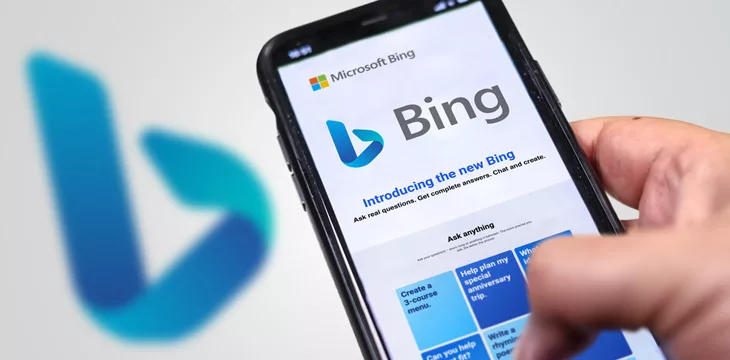|
Getting your Trinity Audio player ready...
|
The European Union (EU) could fine Microsoft (NASDAQ: MSFT) $2 billion over its failure to prevent AI hallucinations and deepfakes on its search engine Bing.
In a recent statement, the European Commission said it was stepping up its enforcement action against the tech giant, which started in March. At the time, the Commission issued a request for information on how Microsoft detects and prevents systemic risks from the AI features on Bing. It also served similar requests to other tech giants, including TikTok, X, Meta (NASDAQ: META) and Google (NASDAQ: GOOGL).
However, according to the first draft of the Commission’s recent statement, Microsoft failed to provide some of the requested documents.
The Commission revised the statement hours after publishing, omitting the accusation and claiming it was just stepping up enforcement “following an initial request for information.”
Under the Digital Services Act (DSA), failure to cooperate with the regulator can lead to fines as high as 6% of total global revenue. However, Microsoft would face a maximum of 1% fine as it provided most of the documents under the information request. Still, this would be a massive figure; in the fiscal year 2023, the company recorded over $210 billion in global revenue.
Under the existing request, the Commission is focused on the risks posed by AI, specifically under ‘Copilot in Bing’ and ‘Image Creator by Designer.’ It is suspected that Bing may have breached the DSA with AI risks such as hallucination, dissemination of deepfakes, and voter manipulation.
A Microsoft spokesperson denied accusations that the Redmond-based company had failed to cooperate with the regulator, saying:
“We have been fully cooperating with the European Commission as part of the voluntary request for information and remain committed to responding to their questions and sharing more about our approach to digital safety and compliance with the DSA.”
The company followed this up with a statement claiming that it has been beefing up guardrails to prevent voter manipulation as the U.S. polls edge closer. This includes partnering with other tech firms under the ‘Tech Accord to Combat Deceptive Use of AI in 2024 Elections.’
Microsoft is one of the world’s most prominent players in the AI sector, riding the wave to a $3 trillion market cap and becoming the largest company in the world. On the flip side, this makes it one of the biggest targets for regulators, especially in Europe, which has been at the forefront of cracking down on Big Tech.
In order for artificial intelligence (AI) to work right within the law and thrive in the face of growing challenges, it needs to integrate an enterprise blockchain system that ensures data input quality and ownership—allowing it to keep data safe while also guaranteeing the immutability of data. Check out CoinGeek’s coverage on this emerging tech to learn more why Enterprise blockchain will be the backbone of AI.
Watch IEEE COINS Conference highlights: Intersection of AI & blockchain

 07-15-2025
07-15-2025 





